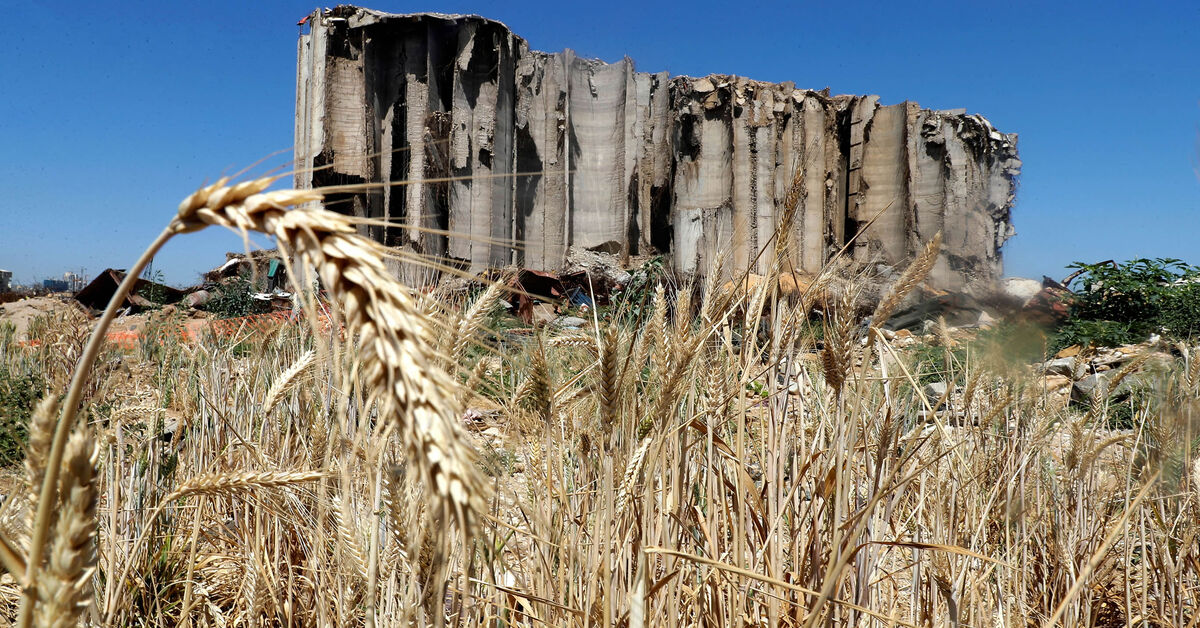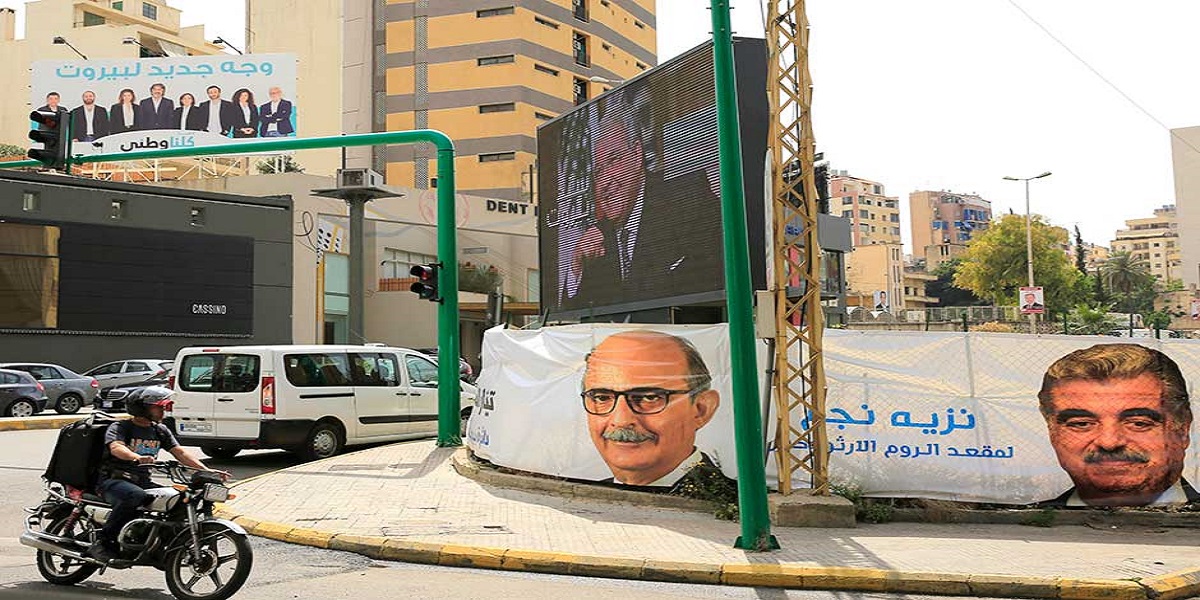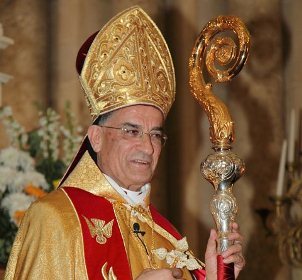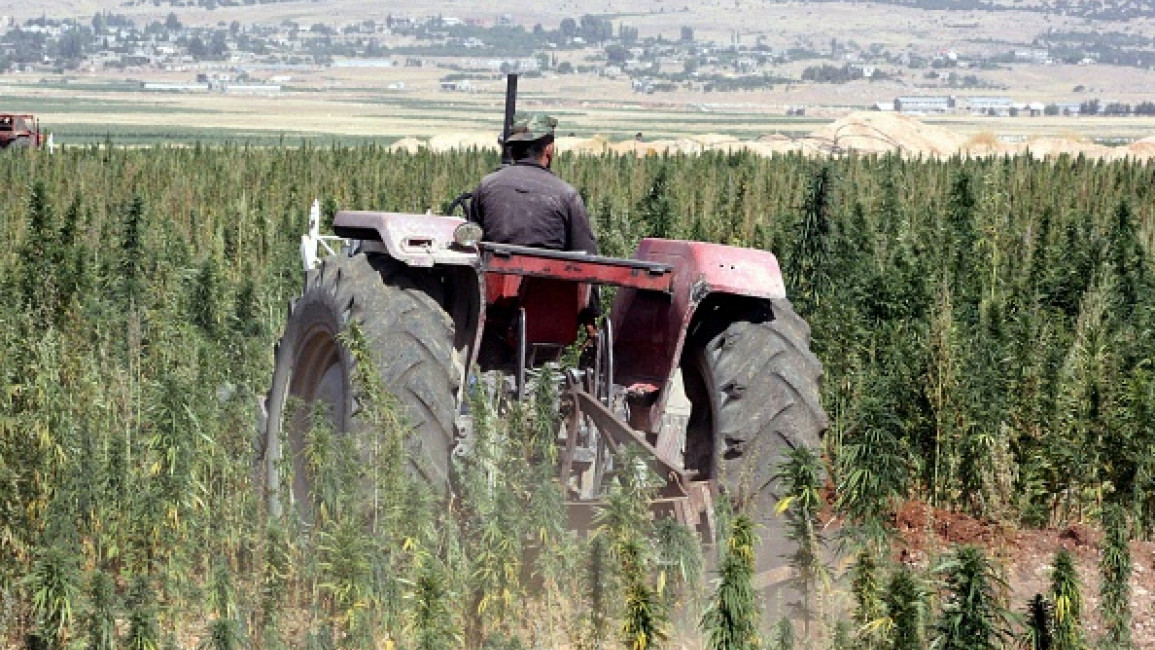
By MOHAMED CHEBARO -- arabnews.com -- Poverty-stricken Lebanese have welcomed the festivities of Easter and the end of Ramadan with empty pockets, empty fridges and empty promises from politicians. They now hope that the same political elite that have supervised the bankruptcy of their country will not be returned at the May 15 general election. However, the opposition voices look too splintered to have any serious success that could challenge the clout of the traditional political elite. I am therefore minded to think that Lebanon’s starving constituents would easily sell their votes for crumbs and reelect the same corrupt politicians, whom I expect to have an even bigger majority in the next parliament.
Lebanon these days is living a schizophrenic existence. On the one hand, it is life as normal for the top 10 to 20 percent of society, whose financial means have not been dented by the country’s economic collapse, its default on foreign debt or the decision of the state to apply capital control. On the other, one cannot fail to notice the beggars that line many intersections and the streets of city centers as the country prepares for a general election that could change the face of the Lebanese Republic for good.

by arabnews.com -- Rashid Hassan -- RIYADH: Lebanese expatriates in Saudi Arabia will cast their votes on Friday, taking part in their country’s parliamentary elections. Fawzi Kabbara, Lebanon’s ambassador to Saudi Arabia, told Arab News: “The diaspora will vote here at the Lebanese Embassy in the Diplomatic Quarter on May 6. The polling will start at 7 a.m. and will continue till 10 p.m. Special arrangements to successfully complete the voting have been made at the embassy.” There are nearly 9,000 voters who will vote in Riyadh and Dammam, he said, adding: “We have another center for Jeddah, where about 4,500 Lebanese expats will vote. After the polling is completed, the ballot papers will be sent to Beirut and will be counted along with the votes cast in Lebanon on May 15.”
Raafat Aoun, a Lebanese expat working in the Kingdom, told Arab News: “The current political situation in Lebanon is decisive and will determine the fate of the country. Because of the monetary and fiscal policies followed for 32 years, Lebanon is in a big predicament. The state is bankrupt because of the quotas, job corruption and policies that have obliterated the middle class, so this stage is delicate, very sensitive.” He added that the people want to take their destiny into their own hands and remove the ruling elite from the government. “The people have discovered that this class has been lying to them with slogans that have led to divisions based on sects and religions. Two weeks are left, and we hope people wake up and make a refreshing change.”
Bol news --The first round of parliamentary elections in Lebanon will be launched on Friday by Lebanese expats voting. Expats will be able to vote in 59 countries, but just 10 will begin voting on Friday. The Friday weekend is observed by expats in these nations, which include Saudi Arabia, Qatar, Kuwait, Syria, and Iraq. The second round of voting will take place on May 8 in nations with a Sunday weekend.
Lebanon’s elections will be held on May 15, with candidates contesting in 15 districts throughout all governorates and districts to choose new members for 128 parliamentary seats. The present parliament’s term, which was elected four years ago, will expire on May 21. The candidate and media code of conduct go into effect 24 hours before the election. The ruling parties have utilized every method of invitation, intimidation, and sectarian divisiveness to maintain their continued presence in parliament, thwarting the opposition’s painstaking efforts to turn the tables.
The list of candidates is dominated by Christian-influenced areas, with 269 registered in Mount Lebanon and 292 in the north. The south, which has a Shiite majority, has the lowest percentage of candidacy, with just 105 candidates running, while Beirut has 174 and the Bekaa area has 203. Nadim Abdelmalak, president of Lebanon’s supervisory commission for elections, criticized “the chaotic opinion polls that claim the victory of one candidate and the failure of another, despite the warnings sent by the commission to those concerned. The election requires every opinion poll prepared for the announcement to be provided to the commission.” Abdelmalak criticized “the magnitude of hate speech and treason, given that the electoral law requires that such rhetoric be mitigated, steering away from abasement, revilement, incitement to sectarian conflict and sometimes terrorism, perhaps used to reinforce sectarianism.”

NNA - Maronite Patriarch, Cardinal Bechara Boutros al-Rahi, presided this morning over the feast Mass of "Our Lady of Lebanon" and the start of the Marian month in the Basilica of "Our Lady of Lebanon" in Harissa. In his homily, the Patriarch prayed to the Virgin Mary, the Lady of Lebanon, on her feast, "to protect our homeland and our people, preserve it as the land of faith and prayer, and sow peace in the hearts." "With the beginning of the Marian month, we raise our eyes and our hearts to our Mother, the Virgin Mary, the Lady of Lebanon, and with the Lebanese, we are looking for a new hope that prayers may bring to them, becoming their main longing as recovery plans and reform projects remain useless in an atmosphere of utmost hatred, and as the positive effect of parliamentary and presidential elections remains limited unless accompanied by the spirit of harmony and devotion, for no issue or crisis is resolved with grudges," the Patriarch said. "With kindness we resolve any disagreement even if deep, while with hatred we fail to resolve any disagreement even if superficial," al-Rahi affirmed.
Referring to the recent Tripoli boat tragic incident, the Patriarch said: "Images of the sinking boat disaster off Tripoli's shores are still vivid before our eyes, and the pain continues in our hearts as we see the death of children, youth, mothers and fathers, and we prayed for the souls of the fallen victims and for comfort and condolences to their families. It is not permissible for this tragedy to be a mere passing event, as some people try to turn its page just as they are trying to turn the page on the Beirut port blast and the explosion of the village of Al-Tleil in Akkar and others...

By William Christou -- alaraby.o.uk -- Lebanon's parliament has passed a law allowing for the cultivation of hemp, the Minister of Agriculture, Abbas Hajj Hassan, said on Monday, though implementation mechanisms had yet to be specified. Hassan called hemp a "lifeline" for the Lebanese economy, saying that it has the potential to generate at least one billion US dollars in revenue. He added that the rules for its implementation were "being accelerated" by the cabinet. He further said that he hoped hemp production would keep "people and youth away from cultivating cannabis," which he deemed a "scourge."
Lebanon has long been famed for its production of cannabis and hash, particularly in the rugged Bekaa valley where sunshine and lack of state control provide perfect growing conditions. Lebanon is the biggest exporter of hashish in the region, and the fourth largest in the world according to the UN. Though the country legalised a form of medical marijuana to boost exports in 2020, regulations have yet to be set. The type of marijuana to be grown is also different from the cannabis that is normally grown in Lebanon, which contains much higher amounts of THC.
Khazen History


Historical Feature:
Churches and Monasteries of the Khazen family

St. Anthony of Padua Church in Ballouneh
Mar Abda Church in Bakaatit Kanaan
Saint Michael Church in Bkaatouta
Saint Therese Church in Qolayaat
Saint Simeon Stylites (مار سمعان العامودي) Church In Ajaltoun
Virgin Mary Church (سيدة المعونات) in Sheilé
Assumption of Mary Church in Ballouneh
1 - The sword of the Maronite Prince
2 - LES KHAZEN CONSULS DE FRANCE
3 - LES MARONITES & LES KHAZEN
4 - LES MAAN & LES KHAZEN
5 - ORIGINE DE LA FAMILLE
Population Movements to Keserwan - The Khazens and The Maans
ما جاء عن الثورة في المقاطعة الكسروانية
ثورة أهالي كسروان على المشايخ الخوازنة وأسبابها
Origins of the "Prince of Maronite" Title
Growing diversity: the Khazin sheiks and the clergy in the first decades of the 18th century
Historical Members:
Barbar Beik El Khazen [English]
Patriach Toubia Kaiss El Khazen(Biography & Life Part1 Part2) (Arabic)
Patriach Youssef Dargham El Khazen (Cont'd)
Cheikh Bishara Jafal El Khazen
Patriarch Youssef Raji El Khazen
The Martyrs Cheikh Philippe & Cheikh Farid El Khazen
Cheikh Nawfal El Khazen (Consul De France)
Cheikh Hossun El Khazen (Consul De France)
Cheikh Abou-Nawfal El Khazen (Consul De France)
Cheikh Francis Abee Nader & his son Yousef
Cheikh Abou-Kanso El Khazen (Consul De France)
Cheikh Abou Nader El Khazen
Cheikh Chafic El Khazen
Cheikh Keserwan El Khazen
Cheikh Serhal El Khazen [English]
Cheikh Rafiq El Khazen [English]
Cheikh Hanna El Khazen
Cheikha Arzi El Khazen
Marie El Khazen